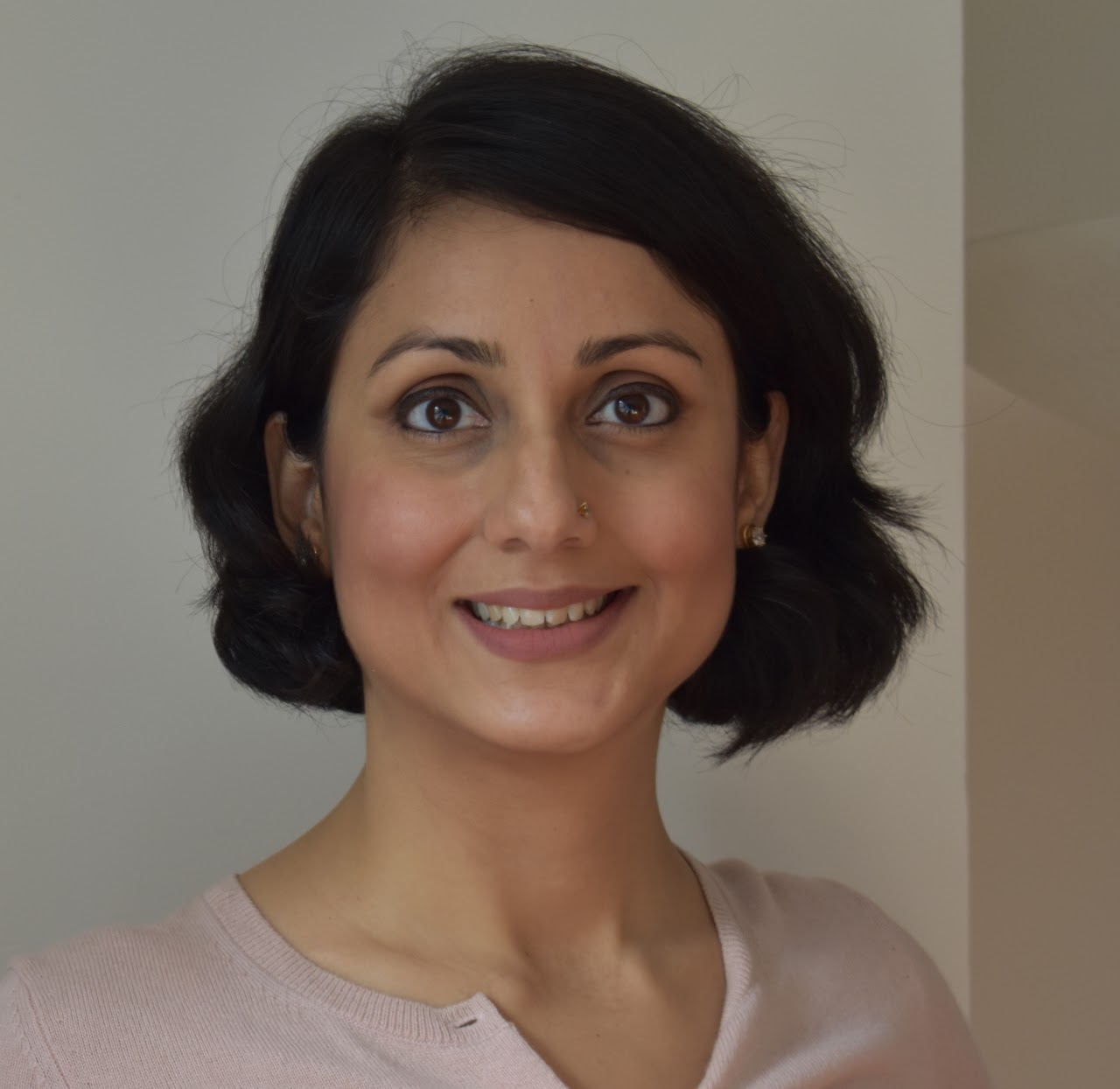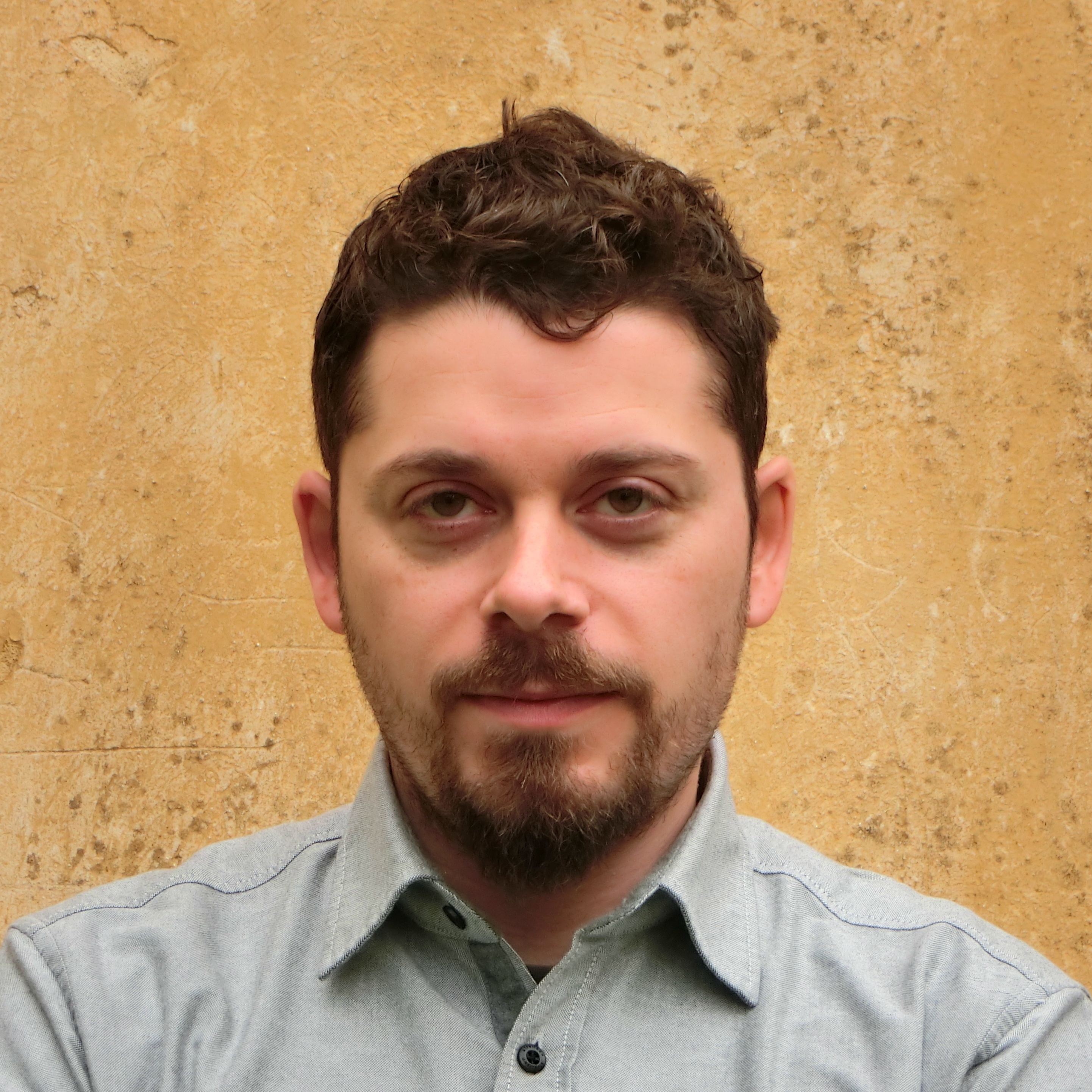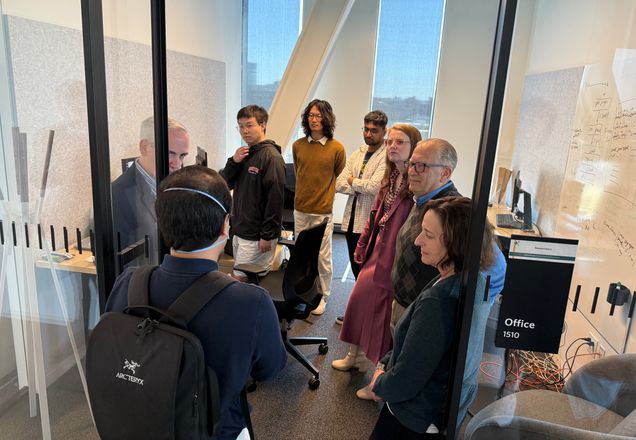From Data to Policy: Inside CDS’s Landmark Workforce Equity Platform
May 2025
What started as a research question at Boston University (BU) has become a policy-shaping force across Massachusetts. In May 2025, policymakers, researchers, and business leaders gathered at the Duan Family Center for Computing & Data Sciences to mark the official release of the Massachusetts Workforce Data Report.
Required by the Frances Perkins Workplace Equity Act and developed using a secure, privacy-preserving data platform engineered at BU, the MA Workforce Data Report represents the culmination of more than a decade of cross-sector innovation, advocacy, and computational rigor. This effort reflects the commitment by the Faculty of Computing & Data Sciences and the University to harnessing data science for societal impact—advancing data-driven policymaking to promote workplace equity.

“This gathering reflects the power of collaboration—across sectors, across disciplines, and across time,” said Azer Bestavros, Boston University’s Associate Provost for Computing & Data Sciences, in his May 2025 welcome address. “This forward-thinking initiative builds on BU’s long-standing commitment to using data science for the public good.”
That commitment began in earnest in 2014, when the City of Boston issued a call for the development of a mechanism that would allow companies to share payroll data without compromising employee privacy. At the time, the conversation around pay equity was largely anecdotal. Companies were reluctant to share sensitive data, and few tools existed to rigorously measure wage disparities across gender and race.
Under Bestavros’ leadership as the founding director of the BU’s Rafik B. Hariri Institute for Computing and Computational Science and Engineering (Hariri Institute), a novel solution was developed—one that would go on to set a national precedent. Drawing on cutting-edge cryptographic techniques and a deep bench of academic expertise, BU researchers and principal investigators Neha Gondal, John Liagouris, and Mayank Varia created a secure data-sharing platform that enabled employers to contribute salary data for equity analysis anonymously.

“Wage equity is a serious and widespread social problem. The data tells us where disparities exist, but to interpret them meaningfully, we have to understand the forces undergirding them,” said Gondal, an Associate Professor of Sociology and Computing & Data Sciences. “This platform doesn’t just generate numbers—it provides a lens into the structural conditions that produce and sustain inequality. That’s what makes it powerful.”
The pilot, housed with the Boston Women’s Workforce Council (BWWC), soon evolved into a regional and statewide movement. Powered by over 200 employer signatories to the BWWC’s 100% Talent Compact, the system has now delivered five workforce equity reports over the last decade, including the 2023 report that revealed women in Greater Boston still earn just 79 cents on the dollar compared to men.
“This platform shows what happens when trust, technical expertise, and a shared mission align,” said Kimberly Borman, Executive Director of the Boston Women’s Workforce Council. “It’s not just about data—it’s about action, and Boston University has been a driving force behind both.”

Varia, Gondal, and Liagouris led the charge in refining the system’s analytical power and expanding its scope. Gondal’s expertise in social networks and inequality shaped the platform’s equity indicators, while Varia’s background in applied cryptography ensured that sensitive data remained secure.
“BU didn’t just answer the call,” said Varia, associate professor of Computing & Data Sciences. “We built a secure, scalable engine for progress—one that marries privacy, transparency, and accountability in service of equity.”

Liagouris, Assistant Professor of Computer Science at Boston University and co-lead of the University’s Complex Analytics and Scalable Processing Research Lab (CASPLab), led the development of ORQ (Oblivious Relational Query Engine)—a secure multiparty computation (MPC) system powering the platform’s statistical analysis. Built on years of research, ORQ reflects BU’s broader effort to use MPC for social good.
“This project is a powerful example of what’s possible when we bring advanced systems research out of the lab and into the world,” said Liagouris. “We were able to apply our expertise in secure computation to a real-world challenge with high stakes and lasting impact.”
The May 2025 launch marks a historic scaling of this work. The platform now serves as the backbone of a statewide mandate requiring companies of a certain size to submit anonymized payroll data annually.
“It’s a win for employers, a win for workers, and a win for transparency,” said Massachusetts Secretary of Labor and Workforce Development Lauren Jones, one of several dignitaries in attendance at the May launch. Also joining the celebration were Undersecretary of Labor Josh Cutler, Brooke Thomson, President and CEO of the Associated Industries of Massachusetts, and Former Lieutenant Governor Evelyn Murphy, co-chair of the BWWC.
Murphy, who has championed wage equity in Massachusetts for more than two decades, called the platform “a testament to what’s possible when academia, government, and industry come together with a shared purpose.”
The platform driving the Frances Perkins Workplace Equity Act represents a breakthrough not just in technology, but in trust-building and cross-sector collaboration. By safeguarding company-level confidentiality while revealing industry-wide trends, it enables the kind of transparency essential to systemic change.
“With this system, we’re no longer operating in the dark,” said Josh Cutler, Massachusetts Undersecretary of Labor, calling the platform a model for public-private data collaboration. “We now have a detailed, anonymized, and scalable way to understand wage gaps in real time—and we have Boston University to thank for building the engine behind it.”
 For BU, the impact extends well beyond the data. As Bestavros emphasized in his May release remarks, the project has become a living lab for student learning. Each report cycle has involved teams of BU students, who have contributed to everything from Python-based data cleaning to Tableau dashboard development.
For BU, the impact extends well beyond the data. As Bestavros emphasized in his May release remarks, the project has become a living lab for student learning. Each report cycle has involved teams of BU students, who have contributed to everything from Python-based data cleaning to Tableau dashboard development.
Liagouris also supervised a team of three BU student researchers who contributed to data extraction, cleaning, and visualization tools used in the project. All three students—Jida Li (CAS ‘25), Rohit Vemparala (CAS ‘24), and Haodong Xu (CAS ‘24)—were enrolled in his Distributed Systems courses (CS 351 and CS 651) and continued their work as part of the Workforce Equity initiative.
“This project became a living lab—not only for advancing research, but for showing students how their work can drive meaningful societal change,” Liagouris added. “They weren’t just coding; they were building systems with real-world purpose.”
Vemparala described the experience as “transformational.” At an April 2025 presentation showcasing the student team's work, Vemparala detailed how the project deepened his technical skills and opened doors to both graduate programs and job offers.
“This is the kind of experience that defines BU’s approach to computing and data sciences,” said Bestavros. “It’s not just about writing code—it’s about understanding context, engaging with stakeholders, and using data to make a difference.”
The story of BU’s wage equity platform is also a story of institutional agility. In 2015, Bestavros penned an essay titled “Computational Thinking Breaks a Logjam,” arguing that the university's strength lay in its ability to apply interdisciplinary approaches to societal challenges. The wage equity platform has since become a flagship example of that philosophy in action—one that has helped define the mission and ethos of BU’s Faculty of Computing & Data Sciences.
“This platform started as an experiment,” Bestavros reflected. “Now it’s a model.”
From a small team of researchers answering a mayoral call to a state-backed, policy-shaping data system housed in one of BU’s most iconic new buildings, the journey to the 2025 Workforce Data Report illustrates what’s possible when ambition meets alignment.
“The Faculty of Computing & Data Sciences was created to break down silos and tackle real-world problems,” said Varia. “This project shows what that looks like in practice.”
As the event concluded, the sense of momentum was unmistakable. With new legislation, growing business participation, and a new generation of student researchers at the helm, the future of workforce equity in Massachusetts looks both more transparent and more achievable.
“And at its core lies a simple but powerful belief that data, when handled with care and courage, can be a force for lasting change,” Bestavros said.
Timeline
2014
- City of Boston issues a challenge: Create a privacy-preserving way for companies to share payroll data.
- Researchers at the BU's Hariri Institute, under the leadership of Azer Bestavros, began developing a secure data-sharing platform.
2015–2016
- Pilot launched in partnership with the Boston Women’s Workforce Council (BWWC).
- The platform uses novel cryptographic techniques to anonymize employer data.
2017–2020
- Adoption grows: Over 200 companies join the BWWC’s 100% Talent Compact.
- BU’s platform supports periodic regional workforce equity reports.
2023
- Fifth equity report released: Highlights persistent wage gaps, with women earning just 79 cents to the dollar compared to men in Greater Boston.
- Advocacy and employer support fuel push for statewide policy.
2024
- The Frances Perkins Workplace Equity Act was passed in Massachusetts, requiring anonymized annual payroll data submission from qualifying companies.
- BU’s platform was selected as the official state mechanism.
Spring 2025
- Landmark Massachusetts Workforce Data Report released at BU’s Duan Family Center for Computing & Data Sciences.
- Attended by policymakers, business leaders, and researchers.
- BU student researchers present their work; the platform is celebrated as a national model.
- BWWC ran the sixth iteration of the gender pay gap analysis